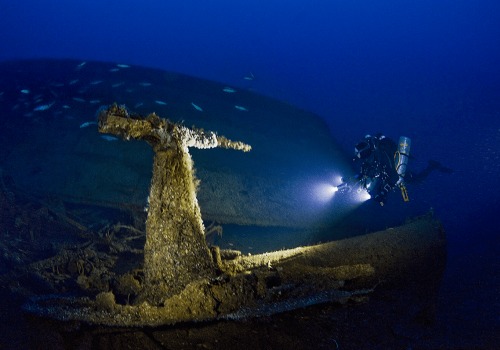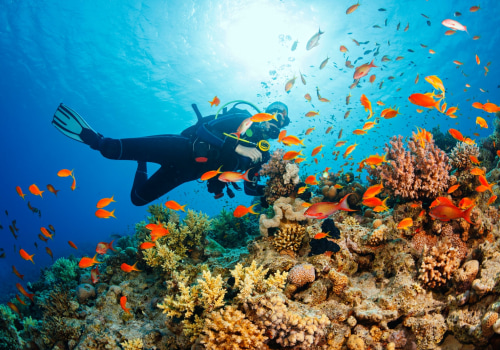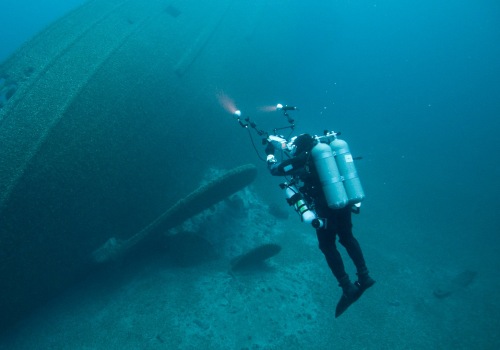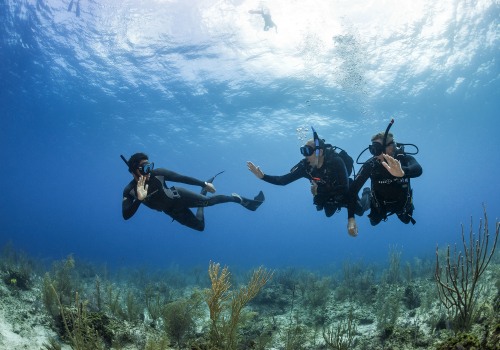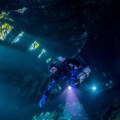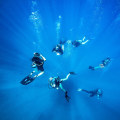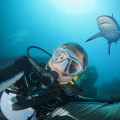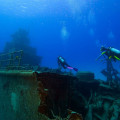Impact that diving has on coral reefs is a major concern for scientists. Touching and kicking coral reefs can cause them to break and be damaged, while sand can cover and suffocate them. Chemicals can also damage and destroy coral reefs, so it's important not to dump anything harmful into the ocean. Divers may not consider diving to be harmful to the marine environment, since it is very small and occurs over long periods, so the impact is relatively low.
Around the world, marine wildlife, such as dolphins, whales, and sharks, is affected by human economic development and population growth. The global decline in fish stocks as a result of habitat destruction, overfishing, and trade has become a major concern for scientists. This year's Convention on International Trade in Endangered Species of Wild Fauna and Flora (CITES), held in Bangkok, Thailand, achieved historic success in the conservation of wild marine fauna and flora. The member states decided to increase protective measures for the white-tipped ocean shark, the Sarrajo marrajo, three species of hammerhead sharks and stingrays.
To generate the necessary funds for the effective implementation of conservation policies, and to raise awareness, diving tourism has become a promising medium. The popularity of diving tourism demonstrates the value that people place on marine ecosystems and wildlife. The amount of money tourists spend to experience the underwater world is an indicator of the financial value of marine fauna, such as sharks, whales or dolphins. Consequently, coastal communities have the capacity to invest in the conservation of marine nature.
However, diving activities themselves can also constitute a threat to marine fauna and coastal ecosystems if not properly managed. Direct and indirect impacts on divers include physical contact with delicate structures such as coral reefs, boat noise, or discomfort for marine wildlife. In order to improve diving management, extensive research has been carried out in recent years on the human dimensions of diving tourism. In an article recently published in Ocean & Coastal Management, a group of researchers from the University of North West South Africa analyzed the motivations of divers, their preferences for wildlife, their experience and diving behavior.
They compared the findings of a study conducted in Sodwana Bay (South Africa) with the results of other research projects in different areas. Through the distribution of 410 questionnaires on the beaches of Sodwana Bay, the researchers collected demographic data and asked about people's preferences regarding wildlife, their level of diving experience, and their perceived impacts on the marine environment. All of the divers interviewed preferred quiet and diverse areas, and particularly those who had already dived in degraded seascapes supported the implementation of restrictions for diving. Some divers lacked basic knowledge about marine ecology and the impacts of diving.
Mostly, only direct physical contact with reef organisms such as corals was considered harmful while impacts associated with special equipment, ships, and general presence of divers were not considered serious. Based on their results, the researchers offer recommendations to harmonize tourism with nature conservation such as increasing education for divers about marine wildlife and human impacts. This could be done by revising diving curricula to prioritize education and conservation awareness; this is particularly relevant for diving instructors in their position as knowledge multipliers. Researchers also recommend that education persist beyond certification by implementing pre-immersion briefings and complying with best practices; adopting codes of conduct and green initiatives such as Green Fins initiative in Southeast Asia or Reef Environmental Education Foundation (REEF) in US; implementing a system of fines for misconduct can complement effective diving management by adding teeth; encouraging diving tourism as a means to achieve large-scale conservation of marine ecosystems justifies implementation of strategies that include greater environmental education; restrictions on tourism; fines in global diving field; maximizing public awareness and appreciation of wildlife while keeping human impacts at sustainable level is challenge that remains to be overcome; designing & implementing these diving management activities around world can be powerful tool for funding conservation of marine species; supporting local economies; providing divers with encounters with rich wildlife; divers' recreational activities with overall positive impact on environment may include citizen science; reef monitoring by volunteer recreational divers & species observation reports by underwater photographers; economic pressure from diving tourists to conserve desirable diving conditions; cleaning plastics & other undesirable debris by divers; Florida organizations addressing environmental issues associated with unregulated diving practices; other international groups expressing similar concerns that sport may harm marine life. If you see that captain is going to anchor reef explain him that it would be better to find empty sandbox although most captains should already know this if you dive at professional diving center; it is not uncommon for high-traffic diving destinations to have more adverse effects with visible signs negative impacts of diving largely because divers have not received sufficient training in skills required for local environment; inadequate orientation before diving or lack basic understanding biodiversity & delicate balance aquatic ecosystems. The diving industry is responsible for some damage to marine environment but if done ethically it can be beneficial to marine environment.
There are variety of diving programs that provide education & conservation awareness; revise curricula prioritize education & conservation awareness; implement pre-immersion briefings & comply best practices; adopt codes conduct & green initiatives such Green Fins initiative Southeast Asia or Reef Environmental Education Foundation (REEF) US; implement system fines misconduct complement effective diving management adding teeth; encourage diving tourism means achieve large-scale conservation marine ecosystems justify implementation strategies include greater environmental education restrictions tourism fines global field.
